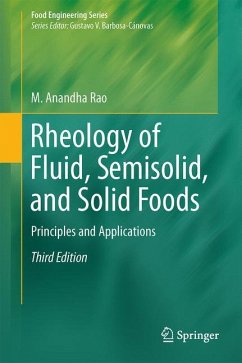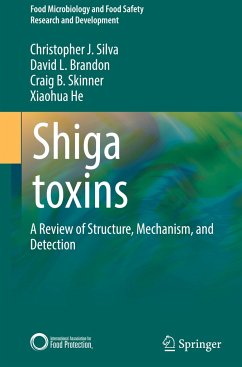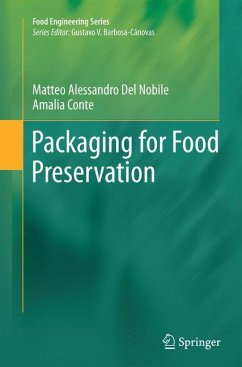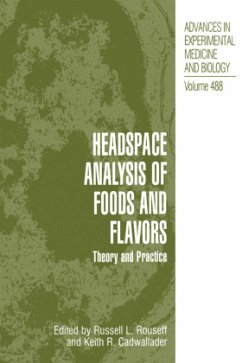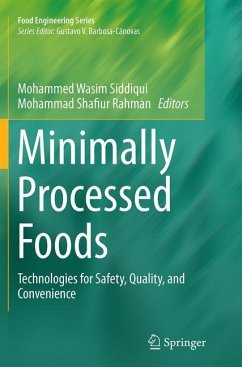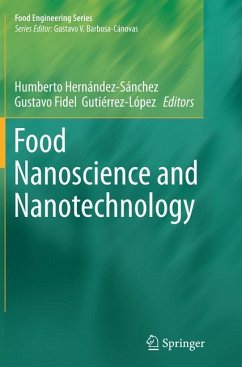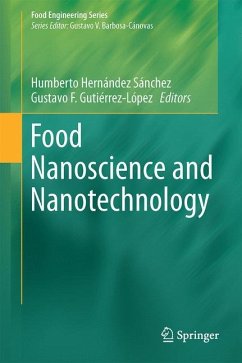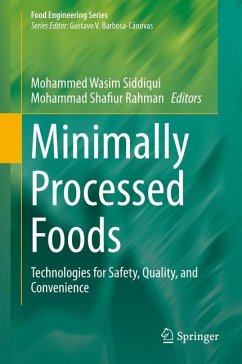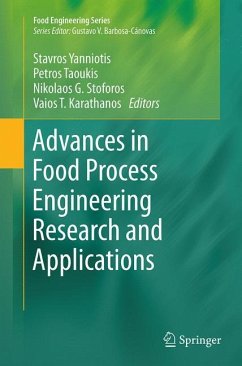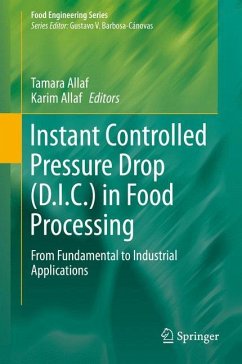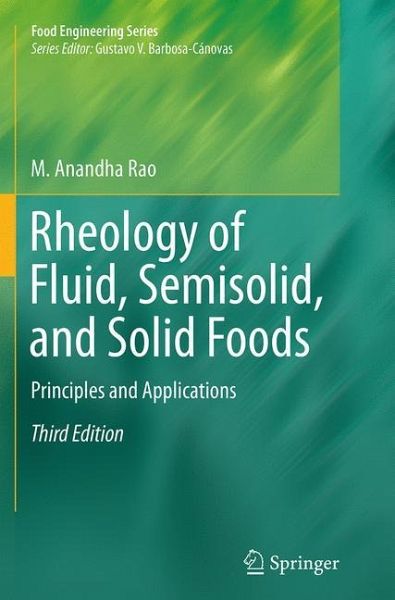
Rheology of Fluid, Semisolid, and Solid Foods
Principles and Applications
Versandkostenfrei!
Versandfertig in 6-10 Tagen
129,99 €
inkl. MwSt.
Weitere Ausgaben:

PAYBACK Punkte
65 °P sammeln!
This revised third edition of Rheology of Fluid, Semisolid, and Solid Foods includes the following important additions:· A section on microstructure· Discussion of the quantitative characterization of nanometer-scale milk protein fibrils in terms of persistence and contour length.· A phase diagram of a colloidal glass of hard spheres and its relationship to milk protein dispersions· Microrheology, including detailed descriptions of single particle and multi-particle microrheological measurements· Diffusive Wave Spectroscopy· Correlation of Bostwick consistometer data with property-based ...
This revised third edition of Rheology of Fluid, Semisolid, and Solid Foods includes the following important additions:
· A section on microstructure
· Discussion of the quantitative characterization of nanometer-scale milk protein fibrils in terms of persistence and contour length.
· A phase diagram of a colloidal glass of hard spheres and its relationship to milk protein dispersions
· Microrheology, including detailed descriptions of single particle and multi-particle microrheological measurements
· Diffusive Wave Spectroscopy
· Correlation of Bostwick consistometer data with property-based dimensionless groups
· A section on the effect of calcium on the morphology and functionality of whey protein nanometer-scale fibrils
· Discussion of how tribology and rheology can be used for the sensory perception of foods
· A section on microstructure
· Discussion of the quantitative characterization of nanometer-scale milk protein fibrils in terms of persistence and contour length.
· A phase diagram of a colloidal glass of hard spheres and its relationship to milk protein dispersions
· Microrheology, including detailed descriptions of single particle and multi-particle microrheological measurements
· Diffusive Wave Spectroscopy
· Correlation of Bostwick consistometer data with property-based dimensionless groups
· A section on the effect of calcium on the morphology and functionality of whey protein nanometer-scale fibrils
· Discussion of how tribology and rheology can be used for the sensory perception of foods





